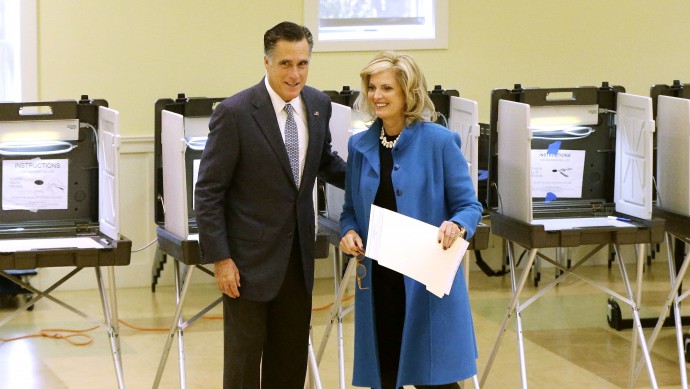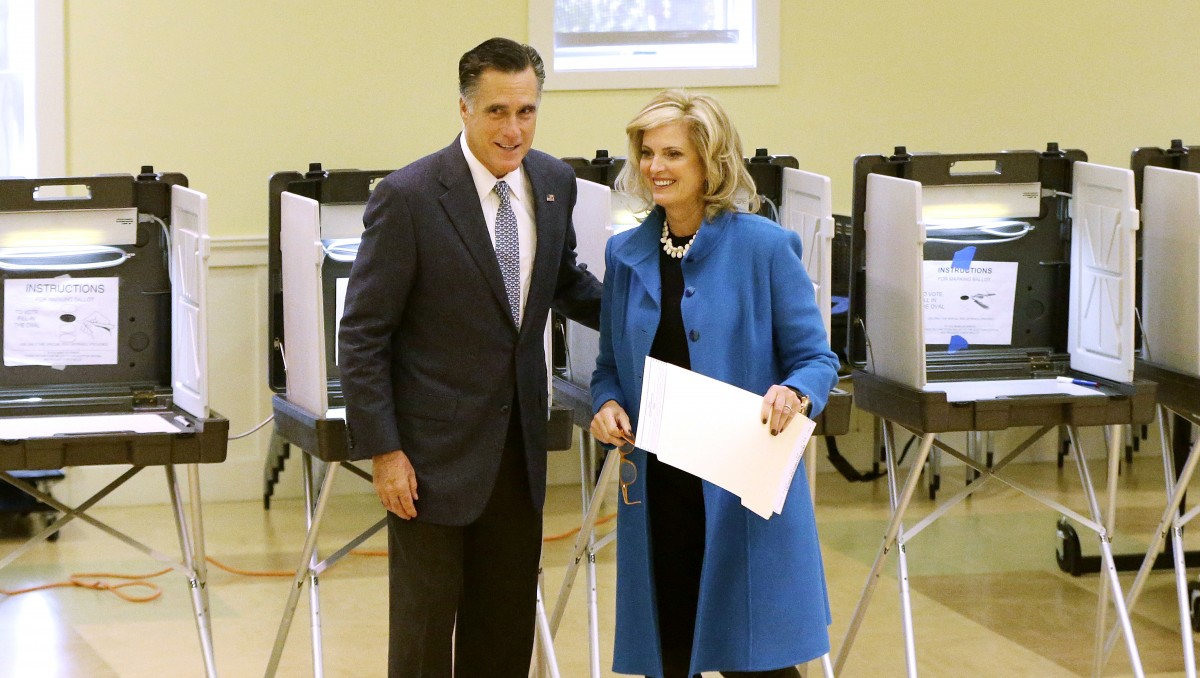
(CONNECTICUT) — It has been said that liberalism won the culture war — or is winning it. Homosexuals can marry. Women are secretaries of state, chief executive officers and Indy race car drivers. Minorities have legally protected purchase of the American franchise. And a half-white, half-black grandson of a working-class secretary who self-identifies as African-American can be president of the United States.
No matter who wins the election, these triumphs aren’t going away any time soon. As the inestimable Darryl Pinckney points out in the New York Review of Books, Americans may not give liberalism the credit it deserves but they aren’t letting go of the 1960s either.
“They do not want to turn back the social clock, especially not the middle class, or anyone striving. They like informal America, to wear jeans, to have sex, to cohabit, and maybe not to marry. Though a large percentage of Americans go to church regularly, the majority do not. A majority also support same-sex marriage. They want health care. Because most households need two incomes, they accept the liberation of women, even if economic equality may mean domestic trauma for some men.”
So liberalism is winning. That is, as long it doesn’t cost any money, as the columnist and historian Eric Alterman once said half-jokingly on Bill Moyers’ public-affairs program.
“[M]arriage equality, however you want to define it, is clearly the wave of the future. … [W]hen I was young, the idea that being gay is something that’s OK, that you would talk about with your children and they would have teachers and friends that were openly gay was unimaginable. [It] was one of the worst things you could joke about … And yet, today, we’ve had a revolution in that area. … When gay marriage first came on the agenda, I don’t think any of us expected that it would be legal so quickly. Civil rights took much, much longer than that. But again women’s rights, civil rights, gay rights, other kinds of rights for people. Anything that doesn’t cost money, really.”
But liberalism has more or less failed to do much about global warming, economic justice or the plight of labor unions and the working class over the past 40 years. The Democratic Party is no longer “the people’s party.” It is now the party of technocrats serving the “politics of recognition” — in effect, championing minority causes — while reassuring the monied elite that no harm will come to nominal taxation, deregulation or the holy writ of laissez-faire capitalism. Other than the fringe of the GOP, the elite have stopped caring about moral decay. Let the gays marry. Just don’t tax our capital gains.
Time to talk about justice
As Alterman again said, this time in the New York Times, that ours is an age in which economic liberalism is waning while cultural liberalism is thriving, because the latter “comes cheap. Supporting same-sex marriage or a woman’s right to choose does not cost the wealthy anything or restrict their ability to become wealthier … [Liberals] lost sight of the essential element that had made [its] coalition possible in the first place: the sense that liberalism stood with the common man and woman in their struggle against economic forces too large and powerful to be faced by individuals on their own.”
I would add: Americans who work for a living, who are in fact the real makers, not the takers, need political representation equal in strength to that of their bosses. Currently, they do not have that. For a while, as the economy careened toward a cliff in 2008, it looked to many liberals for whom the real problems facing our country are grounded in issues of money and power that this class struggle was about to be revealed. At last the market fundamentalism that had gripped the country, as well as the Democratic Party since Gary Hart ran for the presidency, would be discredited. With too much freedom, capitalism destroys. No longer would Democrats talk about “opportunity”; now it was time to talk about justice.
Down the road to Spain and Greece
Yet instead of a reckoning, we got a recapitulation. President Barack Obama’s $800 billion stimulus program was a safety net measure that every credible economist said worked as intended. But the act resulted in a paradox. The more the government helped relieve the widespread pain of economic collapse, the more Americans sought to keep the government from doing any such thing.
Conservatives, Republicans and even some Democrats, as Thomas Frank put it, went to war against the very idea of government oversight of markets, and, indeed, of anything. “How can you react to, you know, three decades of financial deregulation [that] leads to this collapse, this tremendous disaster and our response … has been to say, ‘Well, we need more of that. We need to deregulate more.'”
In 2010, the tea party, a shell group funded by billionaires and operated by zealots, swept Congress. The result was massive cuts that have hobbled the states, leading to layoffs. This, more than anything else, has kept the economy from roaring back. As Obama once said, the private sector, which is adding jobs, is doing all right. It’s the public sector, thanks to the radical right’s demand for austerity, that’s hurting.
If Republican Mitt Romney wins today (or whenever the last ballot is counted), we can expect the debate over austerity to escalate. For all his Cassandra-ing over the deficit leading us down the road to Spain and Greece, his policies, which include a de facto middle class tax increase coupled with massive spending cuts, would likely lead us to Spain and Greece, where the problem is the loss of aggregate demand.
He may also decimate Medicare. Romney’s running mate, U.S. Rep. Paul Ryan, is the author of a plan to turn Medicare into a voucher program, which means the government would no longer guarantee health care. Instead, you would be sent a voucher to shop with and it won’t be enough. You’ll be stuck for the rest, and the rest will continue to rise if Romney keeps his promise to repeal Obamacare.
It is no overstatement to say a voucher system would slowly grind down the lives of the millions. And we are not just talking about society’s margins. We are talking about the very heart of the American electorate, the middle class. Life, liberty and the pursuit of happiness would be a cruel joke.
Victory does not equal a triumph for liberalism
As I said, some of us hoped the grip of market fundamentalism would loosen in 2008. Some of us, in private, even wondered if Wall Street might burn down. It didn’t, and we wondered: How bad does the pain have to be for the 99 percent to wake up to the screwing it’s getting from the 1 percent?
Because of the safety net — food stamps, unemployment insurance, Social Security, Medicare, Medicaid, etc. — it’s plausible most of us didn’t feel how bad the collapse was. Now, I don’t mean there was no pain. Obviously, there was. Plenty. And it has endured. But everyone, every serious person anyway, knows 2008 could have been a hole deeper and blacker than anything since the Great Depression. We learned valuable lessons more than 80 years ago. Yet those lessons may have backfired. The safety net may have weakened our political will to unite as a class against the forces that brought us to the brink.
Given that victory might go to Romney, it’s a sobering thought to consider. If Obama wins, we will be spared such a fate, but victory is not equal to a triumph for liberalism. As a campaigner, Obama has shown great feeling for the plight of Americans who work for a living, and a taste for combat against their bosses. Yet, as president, he has been preternaturally pragmatic. Yes, striking deals is what politicians do. But this president, if he wins, must be reminded, through grassroots protest if needed, that pragmatism cannot come at the cost of the liberal coalition that re-elects him. If liberalism is to win a majoritarian future and speak for a wide cross-section of society that is being crushed, as Alterman said, by forces bigger and richer and more savage than any one individual could hope to be, then it must have a leader who can give those Americans a strong voice so they may pursue life, liberty and happiness.


